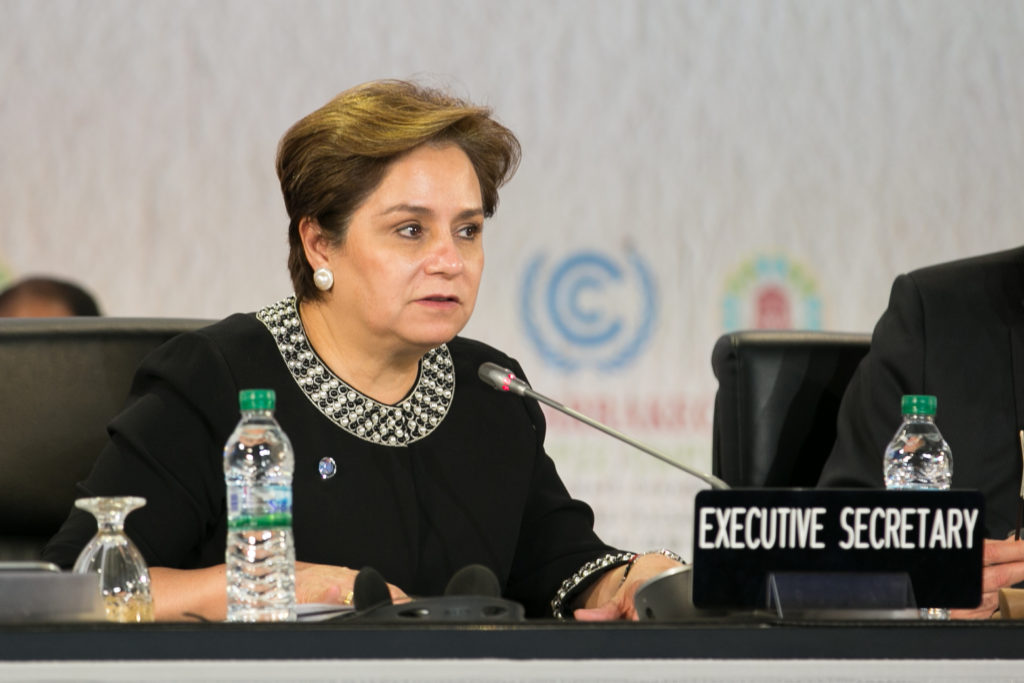The UN’s top climate change official Patricia Espinosa addressed Ministers from Least Developed Countries (LDCs) on Monday, October 11, 2021 as they met to discuss key priorities heading into the crucial UN Climate Change Conference COP26 in Glasgow.

In a keynote address, the UN Climate Change Executive Secretary acknowledged the frustration being felt by many LDCs about lack of progress on issues which are the most important for these countries.
“Nobody understands like you the gravity of our climate emergency. I encourage you to make your priorities as strong as possible and as ambitious as possible at this meeting,” she said.
The world’s 46 least developed countries have already been hit hardest by the impacts of the climate emergency, despite contributing very little to overall emissions. And these countries are in dire need of financial assistance to tackle accelerating climate impacts, which include ever more frequent and intense storms, droughts and floods.
The meeting of LDC Ministers comes against the backdrop of the latest IPCC Report, released in early August, which showed that unless there are rapid, sustained and large-scale reductions of greenhouse gas emissions, the Paris Agreement goal will be impossible to reach. It was followed by the NDC Synthesis Report, an assessment of all national climate action plans, showing that under our current path temperatures could rise to 2.7C, with devastating results for humanity.
The UN Climate Chief called for bold and immediate action to make an urgent transformation away from our high-emissions path towards a low-carbon, resilient future and outlined four key priorities as governments prepare for COP:
First, fulfilling existing commitments. A key issue is the provision of financial support to developing countries, particularly the promise by developed countries to mobilise $100 billion annually in climate finance to support the needs of developing nations. This is crucial for building trust.
Second, wrapping up outstanding negotiations. This includes resolving the complicated issues around Article 6 rules, to finally enable market and non-market tools to launch their operations. In addition, governments must ensure the transparency framework under the Paris Agreement is technically ready to operate and need to also advance work in areas related to adaptation and loss and damage.
Third, increased ambition on all key aspects of the climate agenda. Among these are national climate action plans, known as NDCs, aligned with science; long-term strategies that can ensure climate neutrality by 2050; and progress on the important issues of building resilience.
Fourth, leaving no voices unheard. Finally, and perhaps most critically, success in Glasgow means ensuring that no voices remain unheard, nor viable proposals left on the table. Acknowledging the remarkable power and influence of cities, regions, businesses, investors and educational institutions from all over the world, the UN Climate Chief cited such inclusive multilateralism as “fundamental to reaching global climate goals.”
Ms. Espinosa urged countries with developed economies to take the lead, according to the principle of “common but differentiated responsibilities,” one of the pillars of the Paris Agreement. As for the private sector, she called on all businesses and investors to align their portfolios with the Paris Agreement and the Sustainable Development Goals by 2024.
While acknowledging the significant challenge global leaders will face in Glasgow, she stated: “Billions around the world look to them to make the bold and courageous decisions necessary to finally implement the Paris Agreement, significantly boost climate ambition and ultimately get humanity off its current path of destruction.”
